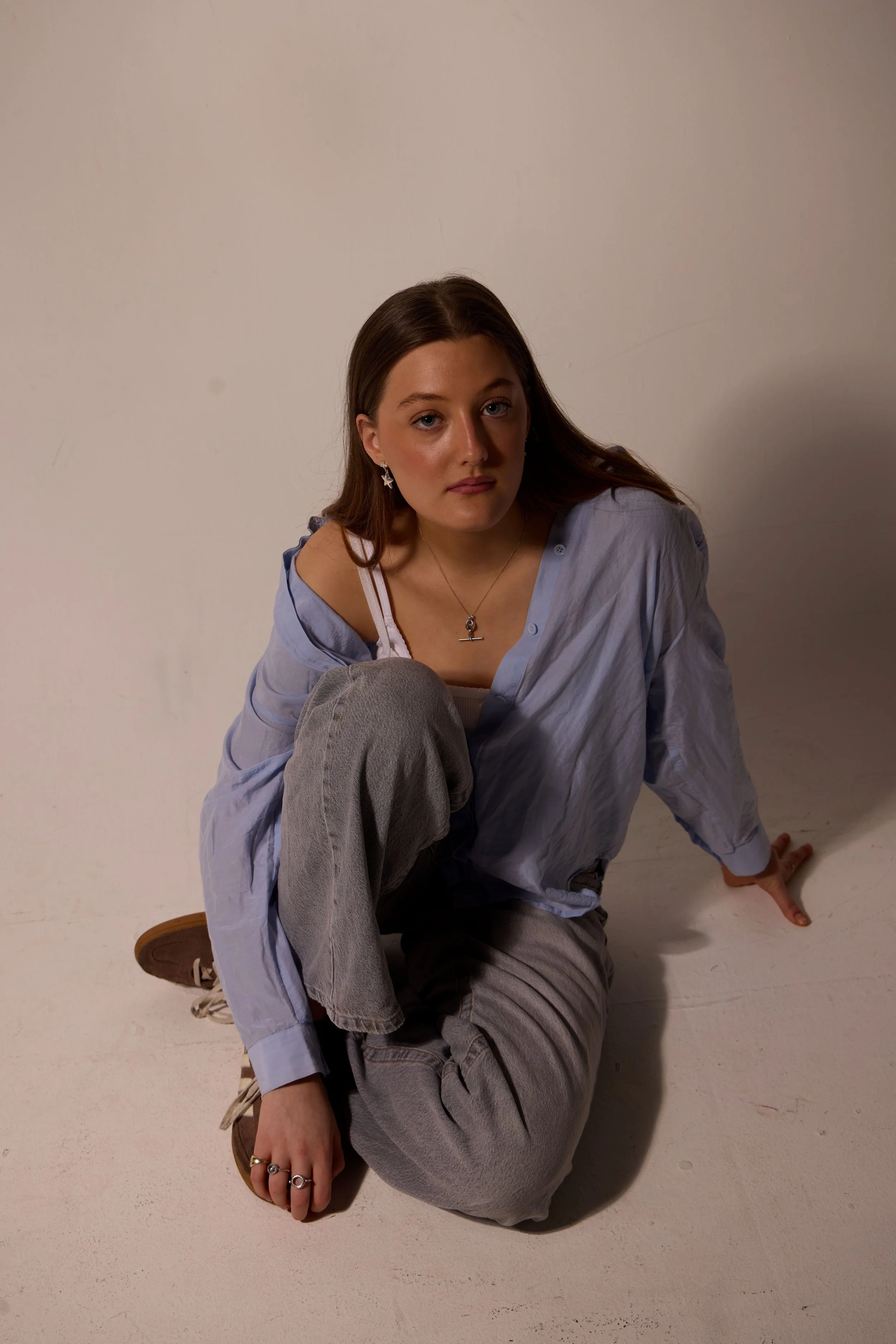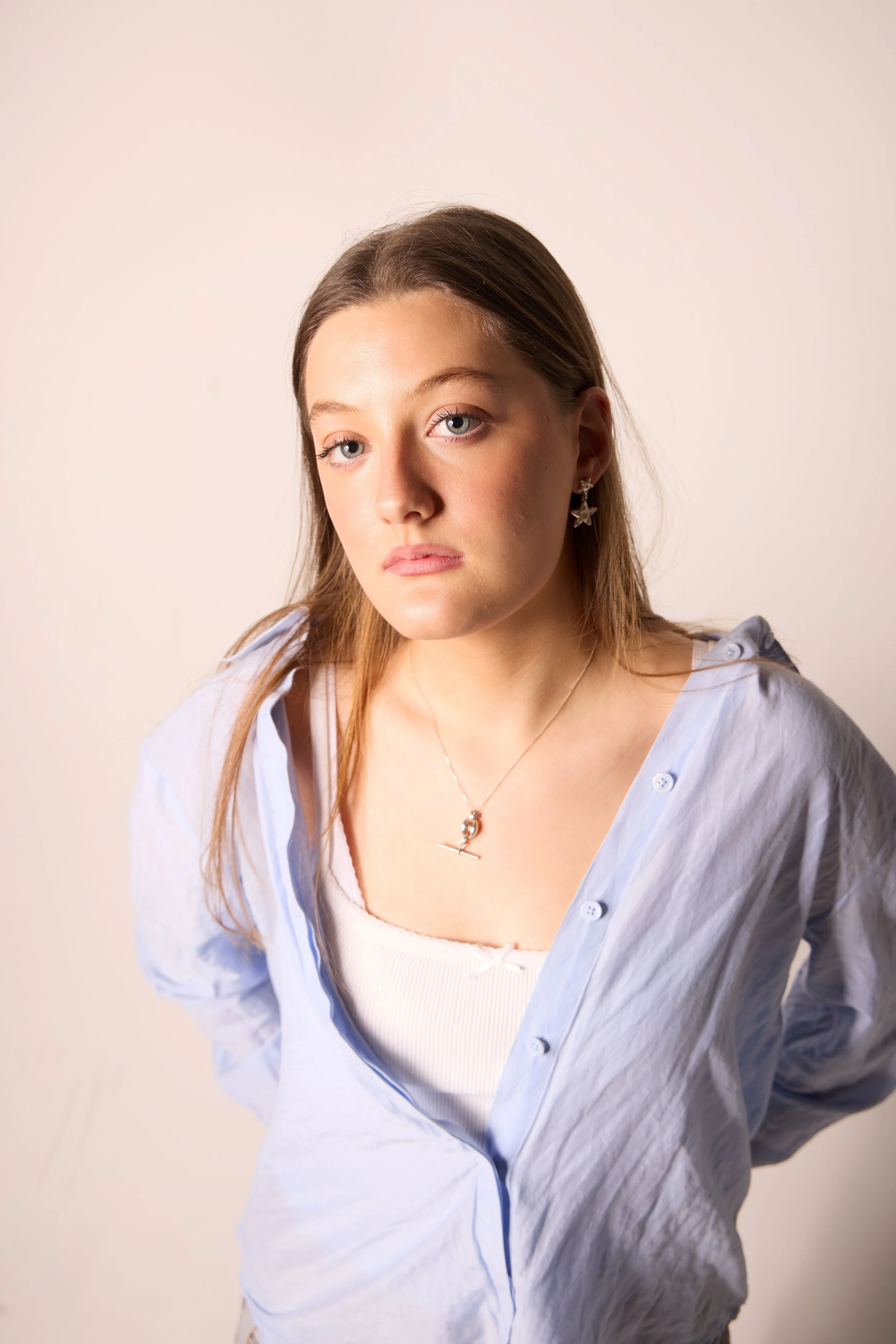Q&A: Connie Goodrich Explores Life’s Uncertainty and Coming of Age in her EP ‘Failing for Answers’
INTERVIEW
INTERVIEW
☆ BY KATHERINE CHUNG ☆
“TRUST THE PROCESS” might as well be Connie Goodrich’s life motto. At 19, the London-based singer-songwriter has already crafted a distinct sound. With her debut EP, Failing For Answers, she blends indie, acoustic, and folk styles, creating music that’s both intimate and expansive.
A few of her biggest musical influences are Lizzy McAlpine, Mumford & Sons, Leith Ross, and Gracie Abrams. A devoted Lizzy McAlpine fan, her favorite song is “Angelina,” which continues to inspire her approach to songwriting. Her lyrics often reflect Lizzy’s passion for music and her tendency to people-please, blending vulnerability with determination.
Failing For Answers draws heavily from Mumford & Sons with every track written in Open D tuning - the same tuning the band frequently uses. This stylistic choice gives her songs a rich, resonant sound that pairs well with her indie-folk influences, tying her music to the artists who have shaped her creative journey.
We sat down with Connie to chat about her journey of growing, learning, and becoming herself. Keep reading to learn more.
LUNA: Congratulations on your EP! What is the inspiration behind your debut EP? And, what stories are you trying to tell in your music?
GOODRICH: I have been working on this EP for about a year. It has been quite a journey. The EP is centered around its final track, ”‘Failing for Answers.” It is about the idea that mistakes are an important aspect of how we live as humans. I believe it’s important to carry that with us into life and keep it in mind.
The EP is focused on myself, as a 19-year-old girl just trying to figure out life. It is raw, real, and here, there, and everywhere. The songs are my streams of consciousness.
LUNA: Before we get into the lyrics and instrumentals, what inspired you to choose such detailed song titles?
GOODRICH: The first song is called “Cold Hands, Warm Heart.” This title represents the contrast between physical coldness and emotional warmth, and captures what it's like to fall in love during winter, my favorite season. I love combining the themes of winter, love, and lust, which all feel connected to me even though they are different. The title reflects both the literal sensation of cold hands in winter and the metaphorical idea of having a warm heart when falling in love, giving the song a cute quality.
Then we have “Going on 29,” a song about feeling like time is slipping away at 19 years old. The title reflects my sense that there’s pressure to achieve something significant by a certain age, capturing my anxiety that life seems to be rushing by.
And then there’s “Pride,” which I wrote about feeling that I want the best in myself. I have a twin brother who is a classically trained musician. I always felt like I was in his shadow. Then I found music. It is also about me wanting to grow, learn, and do more. And to feel that sense of pride which I have not felt much of before.
The last track, “Failing for Answers,” is the premise of the EP. Everyone fears failing and making mistakes, or doing something wrong. But failing is how we learn and grow.
LUNA: In the first track, “Cold Hands, Warm Heart,” there’s a faint voice or chatter in the background during the opening seconds. Can you share what that moment is?
GOODRICH: I was visiting my sister at her university. We were at her friend’s house, and I was talking to one of her friends. He played the guitar, and I played the guitar. And we were just sitting in the living room together. I said, “Can I show you a song?” I showed him my song, then he started playing a riff over top. I used that at the end of my song.
I took an iPhone recording of that moment and put it at the start of my song. That chatter is my sister, her friend, and me chatting before we recorded the riff he made. Then that riff he made is at the end of my song.
LUNA: Your EP cover art is in black and white, which contrasts with the colorful places like Paris that you reference in your music. Was there a reason behind that decision?
GOODRICH: Yeah, that’s interesting. For me, as much as cover art is important in the way you present yourself, it is not my number one priority. I focus more on the recording of the music and how it sounds rather than the cover art. Also, managing a budget can be pretty challenging.
I feel like the black and white image reflects me lying down on this table. I have written these songs. I am figuring out my life. I don’t know what is going on or what I am doing. My life is not colorful. I don’t want to portray having a colorful life. Lots of aspects of the EP are colorful. But I don't want it to feel like this big, bright, beautiful thing I made. I want it to feel like something people can return to and listen to, without it being overwhelming or in-your-face. It is like “This is me. I feel like this, too. I relate.”
LUNA: In “Pride,” you open up about your insecurities along with your hopes and dreams. After releasing the EP, do you feel those insecurities have lessened, or do they still exist?
GOODRICH: Yeah, I do. I sometimes still do. I often feel like I can’t get my words out or I can’t express myself unless I have written a song. It is the feeling of wanting to learn more and grow more that means a lot to me. I haven’t gone to university. I prioritized music. The one thing I am missing about that experience is the learning and growing.
Yes, I can still do those things. It is also like I am not pursuing a degree or minor. It is that feeling I linger for. However, I have always been insecure about my intelligence. In songwriting, when people compliment my songs, it takes away that insecurity for me.
LUNA: The EP title is Failing for Answers, not Falling for Answers—can you share the meaning behind that choice and what it represents?
GOODRICH: I wanted to focus on that word “Failing.” Again, I think that it is something most people fear. The main part of the chorus is: failing for answers. Instead of “falling,” I think that it is important to note that people don’t want to accept that they are “failing.” Through failing, you are finding out those answers. It’s almost like saying, “I am looking for answers. I am failing for answers. I want to fail so that I can find those answers.”
LUNA: Now, after releasing the EP, what answers, if any, have you discovered to the questions you raise in your lyrics?
GOODRICH: I would say none because I am constantly learning, growing, and figuring out who I am. I feel like unanswered questions and rhetorical questions are endearing and fun to have in your life. You cannot just answer every question. I would say none, but I quite enjoy the fact that I haven’t found answers.
LUNA: What are your plans after the EP release?
GOODRICH: I am constantly making music. But I would like to think that with whatever I do next, I am either answering these questions to an extent or I have new questions that I want to ask. Because instead of writing a song and having an answer for listeners, they can listen to the song and figure out their own truth and answers. If I answer the questions for them, it is almost as if there's an end to it.



